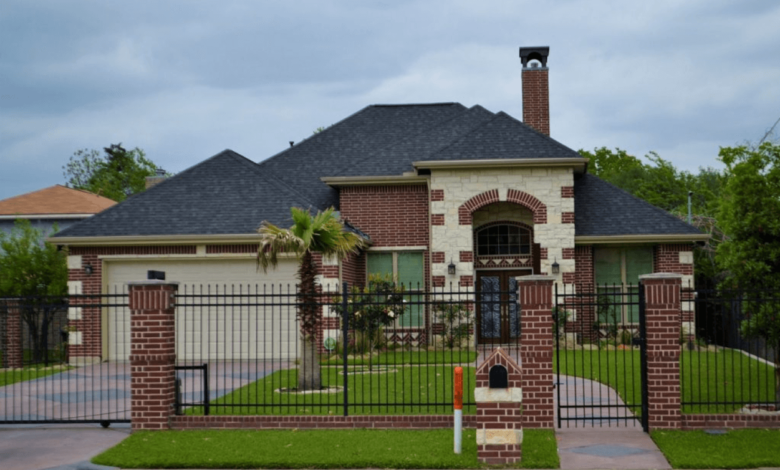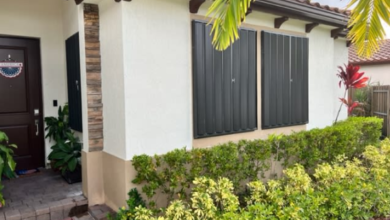Do Gates Deter Thieves?

Gates can indeed serve as an effective deterrent against thieves, acting as both a physical and psychological barrier especially in a commercial setting (see Arrow Industrial security gates). The presence of gates makes a property less attractive to potential burglars by increasing the time and effort required to access the premises, thus reducing the likelihood of opportunistic crimes.
Psychological Impact of Security Gates
Security gates have a significant psychological impact on both residents and potential intruders. For homeowners, gates provide a sense of control and safety, reducing anxiety and improving overall mental well-being. The physical barrier creates a tangible feeling of protection, which can be particularly beneficial for individuals dealing with trauma or post-traumatic stress disorder (PTSD).
For potential burglars, security gates serve as a powerful deterrent. The presence of gates communicates a focus on security, suggesting that other measures may also be in place. This psychological barrier, combined with the physical obstacle, makes properties with gates less attractive targets. The increased time and effort required to overcome these barriers often lead opportunistic criminals to seek easier targets elsewhere.
Effectiveness Against Smash-and-Grab Tactics
Security gates are highly effective in preventing smash-and-grab robberies, a common tactic where criminals quickly break through windows or doors to steal valuables and escape before authorities arrive. These physical barriers significantly increase the time and effort required for entry, making properties with gates less attractive targets for opportunistic thieves.
- Gates prevent easy access through typical smash-and-grab methods, forcing criminals to use more sophisticated and time-consuming techniques.
- The visible presence of gates serves as a strong deterrent, causing many criminals to avoid attempting a break-in altogether.
- Alley-gating, which involves installing gates in alleyways behind properties, has been shown to reduce burglary rates by approximately 37% in some areas.
- Security gates integrate well with other security measures like alarms and cameras, creating a comprehensive defense against various criminal tactics.
Role of Anti-Climb Features
Anti-climb features play a crucial role in enhancing the effectiveness of security gates and fencing systems. These deterrents are designed to prevent unauthorized access by making it difficult or impossible for intruders to scale walls or fences.
- Rotating spikes and roller barriers create an unstable surface, preventing climbers from gaining a foothold.
- Anti-climb paint remains slippery, making surfaces difficult to grip.
- Small mesh apertures in fencing designs, such as the Protek 358 and Twin-Wire gates, make climbing nearly impossible.
- Visible anti-climb measures, combined with appropriate signage, serve as powerful psychological deterrents, often causing potential intruders to seek easier targets elsewhere.
Reinforced Gate Materials
Reinforced gate materials significantly enhance security and durability, with steel and aluminum alloys being popular choices for high-security applications.
- Steel gates offer exceptional strength and resistance to forced entry, making them ideal for industrial and commercial settings.
- Aluminum alloy gates provide an excellent balance of corrosion resistance, tensile strength, and lightweight properties.
- For specialized applications, Glass Reinforced Polymer (GRP) gates offer non-conductive properties, making them suitable for high-risk environments like airports and electrical facilities.
- Composite materials are emerging as alternatives, combining the aesthetic appeal of wood with the durability of synthetic materials.
Perceived Safety and Comfort
The installation of security gates significantly enhances perceived safety and comfort for residents, contributing to improved mental well-being and overall quality of life.
- Feeling safe in one’s home environment is crucial for mental health, as it satisfies a fundamental human need for security.
- The presence of security gates can have a profound effect on those who have experienced trauma or are dealing with post-traumatic stress disorder (PTSD).
- Residents often report improved sleep quality and a greater sense of ease when leaving their homes unattended.
The psychological comfort provided by security gates extends to daily routines and behaviors, fostering a stronger sense of community within neighborhoods. However, it’s crucial to strike a balance between security and aesthetics. Well-designed, aesthetically pleasing security solutions can enhance both the physical security and the psychological comfort of residents without compromising the welcoming atmosphere of a home.
Fear of Crime Reduction
Alley-gating schemes have proven to be effective not only in reducing actual crime rates but also in significantly diminishing the fear of crime among residents. This psychological benefit is crucial for community well-being and quality of life.
- The installation of security gates in communities has been shown to create a stronger sense of ownership over secured areas among local residents.
- The psychological impact of visible security measures, such as gates, can evoke feelings of safety and protection.
- In areas like Rochdale, UK, where alley gates have been installed, a significant number of residents reported feeling safer.
It’s important to note that the effectiveness of alley gates in reducing fear of crime may vary depending on community characteristics. Tailoring the implementation of such security measures to the specific needs and dynamics of each community can maximize their psychological and practical benefits.
Summary
Security gates act as both physical and psychological barriers, making properties less attractive to thieves and reducing the likelihood of burglary. Their effectiveness extends to deterring smash-and-grab tactics and preventing unauthorized access with features like anti-climb designs and reinforced materials. Beyond physical security, gates contribute to improved mental well-being by enhancing perceived safety and comfort for residents. Community-level measures, such as alley-gating, not only reduce crime rates but also diminish the fear of crime, fostering a sense of ownership and cohesion. By combining aesthetics with functionality, security gates provide comprehensive protection while maintaining a welcoming atmosphere.




